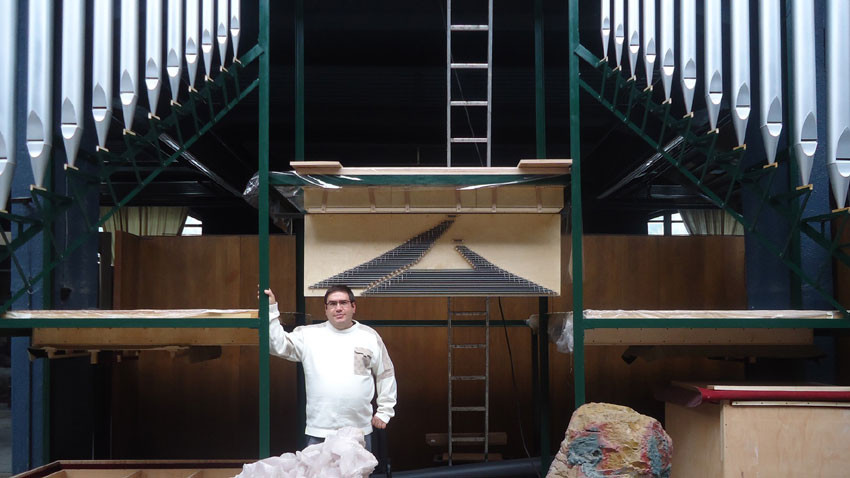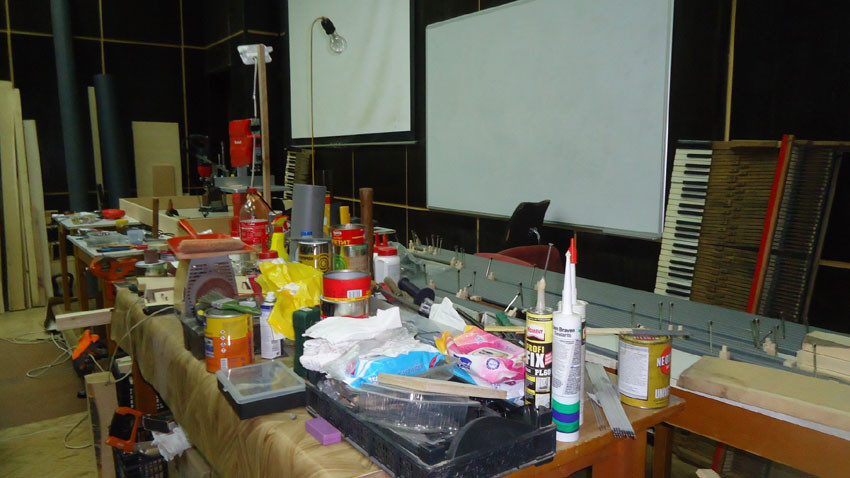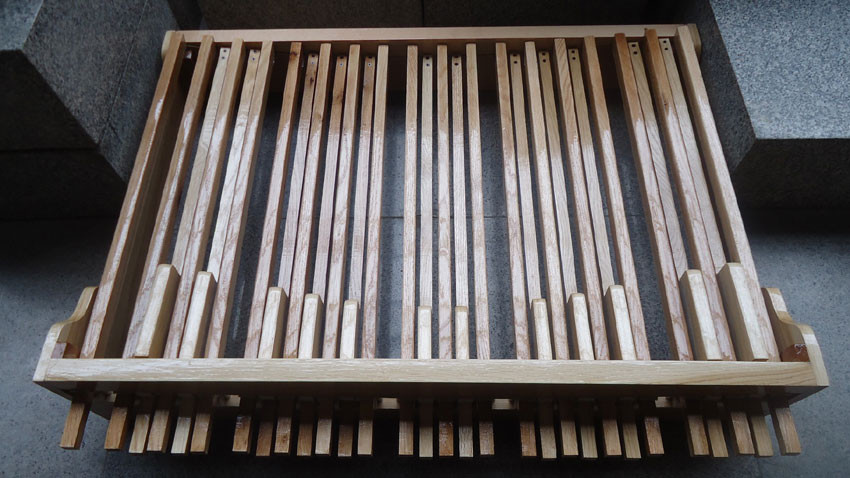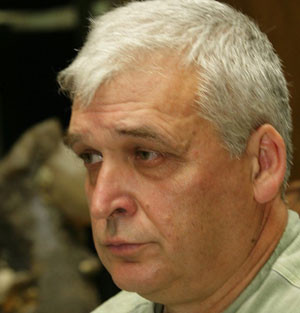
Just a few months from now, the first-ever fully Bulgarian-made pipe organ will exhibit its power, energy and overwhelming sound in an emblematic location downtown Sofia dubbed by locals “the museum with the crystals”.
Among the natural treasures stored at the Earth and Man Museum in the Bulgarian capital, a young Bulgarian musician pursues his Sisyphean dream and works on building a pipe organ, all by himself. Even though the so-called king of musical instruments has long been used in some of Bulgaria’s concert halls, all instruments encountered in this country up to now were made abroad and only assembled here.

“I first had the idea of building an organ when I was a student at the music high-school and I acquainted myself with the works of Bach, Pachelbel, Buxstehude," says Rosen Draganov. "But these were only bold dreams at the time, which started to acquire some more realistic shape during my studies at the Music Academy. After I was able to make a pedal keyboard, Professor Neva Krasteva, whose pipe organ class I attended, allowed me to maintain the instrument in the academy concert hall as a tuner. And so I started - I first connected the pedalboard to the piano using a fishing line, then I made another pedal keyboard, and I started to make a small pipe organ for use at home. The pipes were made of PVC, and for the air chamber I used the drums of three washing machines. The thing, however, was quite amateurish.”
Rosen learned the intricacies of pipe-organ making from the specialized literature offered to him by Prof. Neva Krasteva from the Internet. But most of all, by "stealing" the craft of the German pipe-organ maker Jens Steinhoff, whom he helped repair the organ in the concert hall of the Sofia-based music academy and mount a smaller instrument in one of the study rooms.

Since 2009, Rossen has begun to collect materials, machines, tools, preparing to fulfill his dream. You have to be good at metalworking, carpentry, but above all to be quite knowledgeable in the musical aspect of the job - to have a sense and to know where and how to place each section of the organ, he adds.
“The instrument will have 31 registers, two manuals, and a standard pedal keyboard. Nearly 2000 pipes will be located on the facade. Half of them are already ready, as well as the frame - the foundation of the organ, and the air chambers. Besides, with my mother we built the turbine and we have now come to the bellows which is the main air distribution tank. Yet, the most difficult question for me now is – how long will it take to complete the whole thing? In my boldest predictions, I thought I would end in one year, but I'm now well into the second year, and the instrument has not been played yet. I hope, however, that we will be able to hear its sound within a few months with its main registers, which are between 20 and 25. And for the rest, and for the completion of the whole instrument, financial aid will be needed”.

In the western countries a pipe organ normally costs between a million and 1.5 million leva. Rossen, however, builds his instrument, relying solely on the help of his family.
 Museum Director Chavdar Nachev says he did not want funds from the Ministry of Culture, but he will think about a sponsorship campaign when the instrument is finished:
Museum Director Chavdar Nachev says he did not want funds from the Ministry of Culture, but he will think about a sponsorship campaign when the instrument is finished:
“When Rosen proposed to build an organ here, I had to study further whether his idea was feasible”, he said."Then he took me to the Music Academy and the Bulgaria Concert Hall to see the other instruments and I realized they were not accessible for children. Here in the museum the instrument could be used by young people right after the working hours - for lessons, rehearsals, master classes.”
For the premiere of his "child" the pipe organ master-builder has already received the consent of Prof. Neva Krasteva. He himself will also play some of his own compositions. And he assures us that on that upcoming solemn day, if we close our eyes and leave our senses to the effect of the divine sounds, we will feel as if we were in a temple.
English Rossitsa Petcova
Photos: Diana TsankovaEuropean Days of Artistic Crafts are starting today in Bulgaria's Antonovo . The motto of this year's edition is "The Golden Thread", which is why it will begin with workshops on wool felting. Every day until the end of the week, residents and..
Writer Kalin Terziyski will present his collection of short stories "Is Anyone There to Love You?" at the Bulgarian Cultural Institute in Berlin on April 1. The book, translated into German by Elvira Bormann, tells of life in a city full of mystery,..
On Theater Day - March 27, the Union of Artists in Bulgaria traditionally presented the National Awards for Performing Arts IKAR. The award for outstanding contribution to Bulgarian theatre went to actor Yavor Milushev and was..
Canadian writer of Egyptian origin Eric Chacour is a quest of Radio Bulgaria during his visit to Sofia as one of the visiting speakers during the Month..
The upcoming exhibition of Bulgarian artist George Papazoff in Zagreb on 5 May 2025 was the focus of a meeting at the Bulgarian Embassy in the Croatian..

+359 2 9336 661
